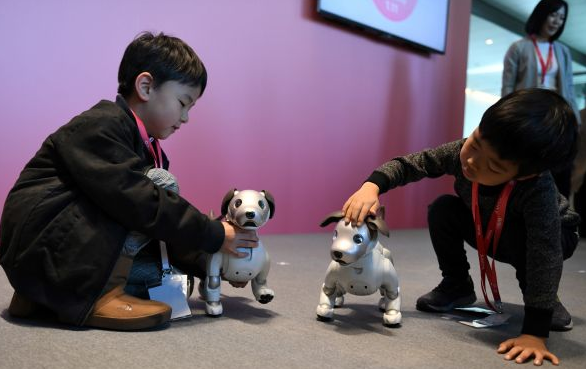Sony's core strategy for business reconstruction has always been centered on innovation, a principle that was deeply ingrained in the mindset of Japanese engineers and technicians in previous decades. In the past, engineers were valued for their ability to achieve original, groundbreaking innovations. However, recent shifts in the industry have prompted major Japanese manufacturing companies—such as Hitachi, Toshiba, Panasonic, and Fujitsu—to rethink their recruitment and development strategies.
According to reports, starting from 2016, these companies began to adjust their policies in response to the growing influence of the Internet of Things (IoT). Rather than focusing solely on developing entirely new technologies, the emphasis has shifted toward improving existing products or finding innovative ways to combine current technologies to better meet customer needs. This change reflects a broader trend where adaptability and practical application are becoming more important than pure technical invention.

For example, Hitachi made significant changes to its talent recruitment criteria in the 2016 fiscal year (April 2016 to March 2017), prioritizing individuals who are action-oriented and highly mobile over those who focus primarily on deep thinking. The company also increased the proportion of employees who can create value. The goal is to hire newcomers who can identify problems and market opportunities independently and propose effective solutions. This new approach is expected to continue into the 2018 fiscal year.
Similarly, Nakao, director of Panasonic’s CTO room technical talent strategy department and head of the cutting-edge research headquarters, stated that with many key technologies now openly available online, it has become easier for engineers to work in such an environment. However, the company now values individuals who continuously explore and innovate to deliver real value to customers. They also look for people who can quickly adapt and improve even if they face failures along the way.
Fujitsu, which specializes in IT systems and software, has taken a more direct approach. With a vast amount of existing code already in place—whether on public networks or internal systems—the company now places greater importance on the ability to combine, refine, and optimize existing programs to deliver tangible value. Writing code from scratch is still important, but the ability to reconfigure and streamline existing solutions is now more critical.
Most IoT applications today rely on combining existing hardware and software to meet customer demands. From the customer’s perspective, business value isn’t necessarily about having the latest technology or product, but rather about how effectively technology, products, and materials are used.
However, one area where existing software and hardware can be leveraged is artificial intelligence (AI). The data collected by IoT devices must be analyzed using AI, which has led Japanese manufacturers to expand their hiring of AI talent. For instance, Panasonic plans to recruit 300 AI specialists in the 2018 fiscal year and aims to scale this up to 1,000 within a short time to develop its own AI capabilities.
According to a source from the Zhongwei class, in the past, the workforce in Japanese motor factories tended to have similar educational backgrounds and shared similar values and personalities. This homogeneity is now being challenged. Companies are seeking talents with breakthrough thinking who can identify and solve customer problems in innovative ways. These individuals are gradually replacing traditional engineers who focused narrowly on single-field research, becoming the most valuable assets in the future.
Aluminum Frame LV 3PH Asynchronous Motor
Aluminum Frame Lv 3Ph Asynchronous Motor,Three-Phase Asynchronous Motor,3 Phase Asynchronous Induction Motor,Aluminum Frame Three Induction Motor
Yizheng Beide Material Co., Ltd. , https://www.beidevendor.com
